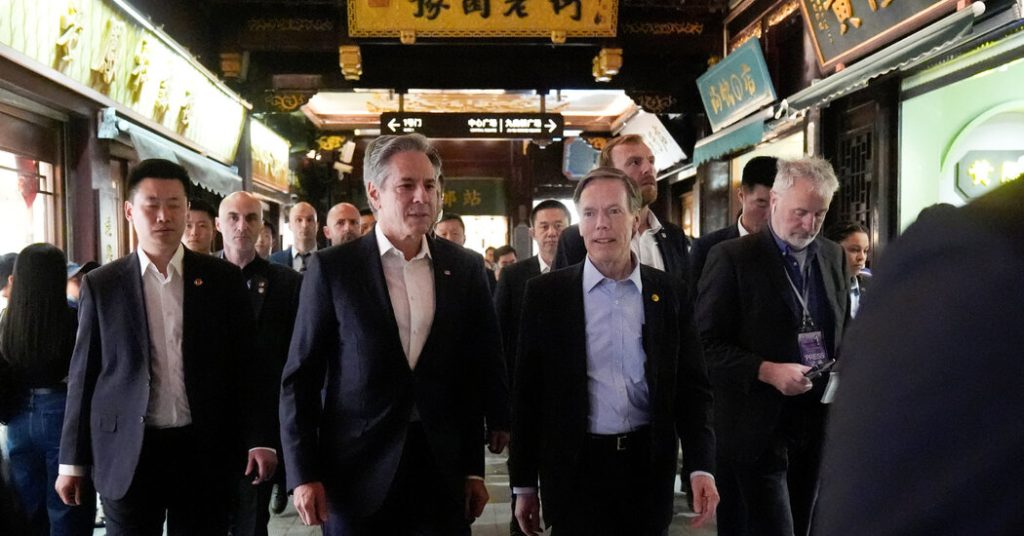During his recent visit to China, U.S. Secretary of State Antony J. Blinken highlighted the economic, educational, and cultural ties that the United States values with the country. This comes as the Biden administration is taking steps to sever economic ties deemed detrimental to American interests. Measures include raising tariffs on Chinese products such as steel and solar panels, restricting China’s access to advanced technologies like semiconductors, and passing legislation forcing the Chinese owner of TikTok to sell its stake in the app within months. Despite the cordial tone of Blinken’s visit, tensions remain between the two countries regarding economic measures.
The Biden administration has been moving towards a more restrictive economic relationship with China, with a focus on semiconductor technology and export controls. Both leaders, Biden and Xi, have emphasized the importance of controlling technology as it relates to national security. The U.S. government justifies these restrictions due to China’s authoritarian government and economic policies, but they have triggered backlash from Chinese leaders. China, in turn, is seeking to become more self-sufficient in high-tech industries and has enacted its own security measures that impact foreign businesses and data sharing.
As the U.S. and China navigate these economic tensions, there is recognition that the relationship goes beyond just restrictions and sanctions. While measures targeting Chinese tech companies are in place, other areas of trade and cooperation continue to be encouraged. U.S. exports to China support a significant number of American jobs, emphasizing the importance of maintaining a balanced approach to U.S.-China trade policy. The U.S.-China Business Council has highlighted the need for policymakers to carefully consider the implications of changes in trade policies on a broader level.
Despite efforts to manage the U.S.-China relationship responsibly, issues regarding technology controls, cybersecurity, and national security continue to impact economic ties between the two countries. China’s push for self-sufficiency in high-tech industries, paired with the U.S. government’s restrictions, has led to a complex dynamic in which mutual interests clash with security concerns. The Biden administration’s focus on safeguarding American technologies while navigating a stable relationship with China underscores the challenges and complexities of managing the U.S.-China economic relationship.
Both countries are navigating a delicate balance between economic partnership and security concerns, with tensions rising as each side asserts its national interests. While efforts are being made to maintain positive aspects of the economic relationship, such as trade and cultural exchanges, the restrictions and sanctions imposed on Chinese tech companies highlight the ongoing challenges in managing economic ties amidst geopolitical tensions. As the Biden administration continues to navigate the U.S.-China economic relationship, the need for careful consideration and strategic decision-making becomes increasingly crucial in ensuring a balanced and stable partnership between the two global powers.


